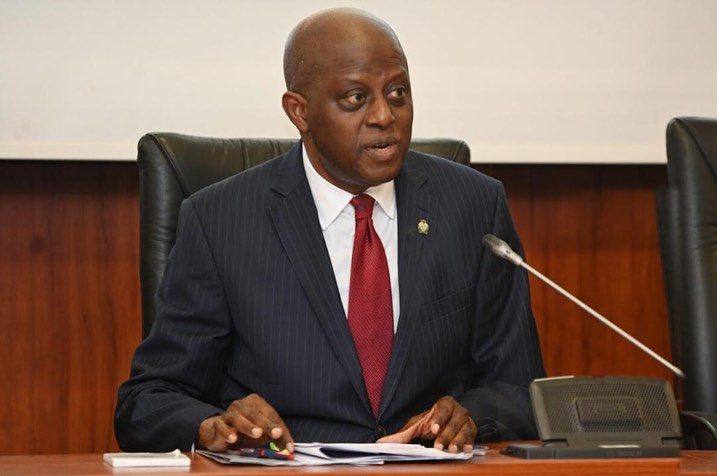Banks Raise N2.03trn As Recapitalisation Deadline Nears
Deposit money banks (DMBs) have raised about N2.03 trillion cumulative fresh capital as they are working towards meeting the March 31, 2026 deadline to shore up their capital base to the new requirement as set by the Central Bank of Nigeria(CBN).
Over the past months, banks had raised capital through public offerings, rights issues and private placement, raising over N2.033 trillion in the process. While only one merger is currently ongoing, the majority of the banks expect that they will meet up the new capital base on or before the deadline which is in nine months and 15 days.
The CBN had given a 24 months timeline, running from April 1, 2024 to March 31, 2026 for banks with international licences to maintain at least N500 billion, national banks to have minimum of N200 billion, and regional banks to maintain N50 billion as paid up capital.
While several financial institutions have already met the Central Bank of Nigeria’s recapitalisation threshold, others are progressing into the second phase of their capital-raising plans, and a few are still exploring strategic options.
Zenith Bank Plc leads the Tier 1 pack, having successfully raised N290 billion through an oversubscribed rights issue and public offer, with a subscription rate of 160 per cent. This has boosted its qualifying capital to N614.65 billion, well above the N500 billion requirement.
Access Holdings also completed a N351 billion rights issue, offering 17.77 billion shares at N19.75 per share. As a result, Access Bank was the first bank with an international license to formally meet the CBN’s capital requirement, bringing its capital base to N594.90 billion.
Guaranty Trust Holding Company (GTCO) having initiated a N400.5 billion capital programme had secured N209.41 billion via its public offer. The bank is now entering the second phase of its capital raise.
FBN Holdings, the parent company of FirstBank, raised N187.6 billion from a rights issue that was 25 per cent oversubscribed and is preparing for a N350 billion private placement. With a current capital of N251.34 billion, a successful placement would push its total capital to N601.82 billion.
Meanwhile, other players remain in the thick of their recapitalisation journey. United Bank for Africa (UBA) recently concluded a rights issue oversubscribed by N251 billion, of which the CBN approved N240 billion due to regulatory limits. This brought UBA’s capital to N355.2 billion, leaving a shortfall of N144.8 billion to be covered later in the year.
Stanbic IBTC Holdings and Sterling Financial Holdings Company are steadily advancing in their recapitalisation efforts. Stanbic recently completed a N148.7 billion private placement and awaits the outcome of a public offer. Its capital presently stands at N109.26 billion but is projected to rise to N257.96 billion. Sterling raised N67.5 billion via a 103 per cent subscribed rights issue and anticipates a total post-recapitalisation capital of N262.26 billion.
Fidelity Bank had also made progress in its recapitalisation drive, raising a total of N302.95 billion so far, having raised N127.1 billion through the first tranche of combined rights issue and public offer. It proceeded with a subsequent hybrid rights offer and public issue, raising an additional N175.85 billion early this year and is on track to meet the N500 billion capital base.
FCMB is tackling a capital gap of N374.71 billion. It has raised N147.5 billion through a private placement and completed a N110.90 billion rights issue, bringing its capital to N266.23 billion. The bank expects to meet the N500 billion target by early 2026.
Similarly, Wema Bank closed a N150 billion rights issue on May 21, 2025. At its 2024 Annual General Meeting, CEO Moruf Oseni disclosed that the bank had met the capital requirement, pending CBN confirmation. A N50 billion private placement, already approved by shareholders, could raise Wema’s capital to approximately N267 billion.
Head of Financial Institutions Ratings at Agusto & Co., Ayokunle Olubunmi, commenting on the recapitalisation drive, noted that the exercise has added a buffer to the financial system, putting banks in a stronger position to withstand macroeconomic shocks and better support economic growth.
“Banks will be critical if Nigeria is to attain its GDP targets. With stronger capital bases, they are better placed to scale and drive inclusive economic development,” he said.
We’ve got the edge. Get real-time reports, breaking scoops, and exclusive angles delivered straight to your phone. Don’t settle for stale news. Join on WhatsApp for 24/7 updates →
Join Our WhatsApp Channel









